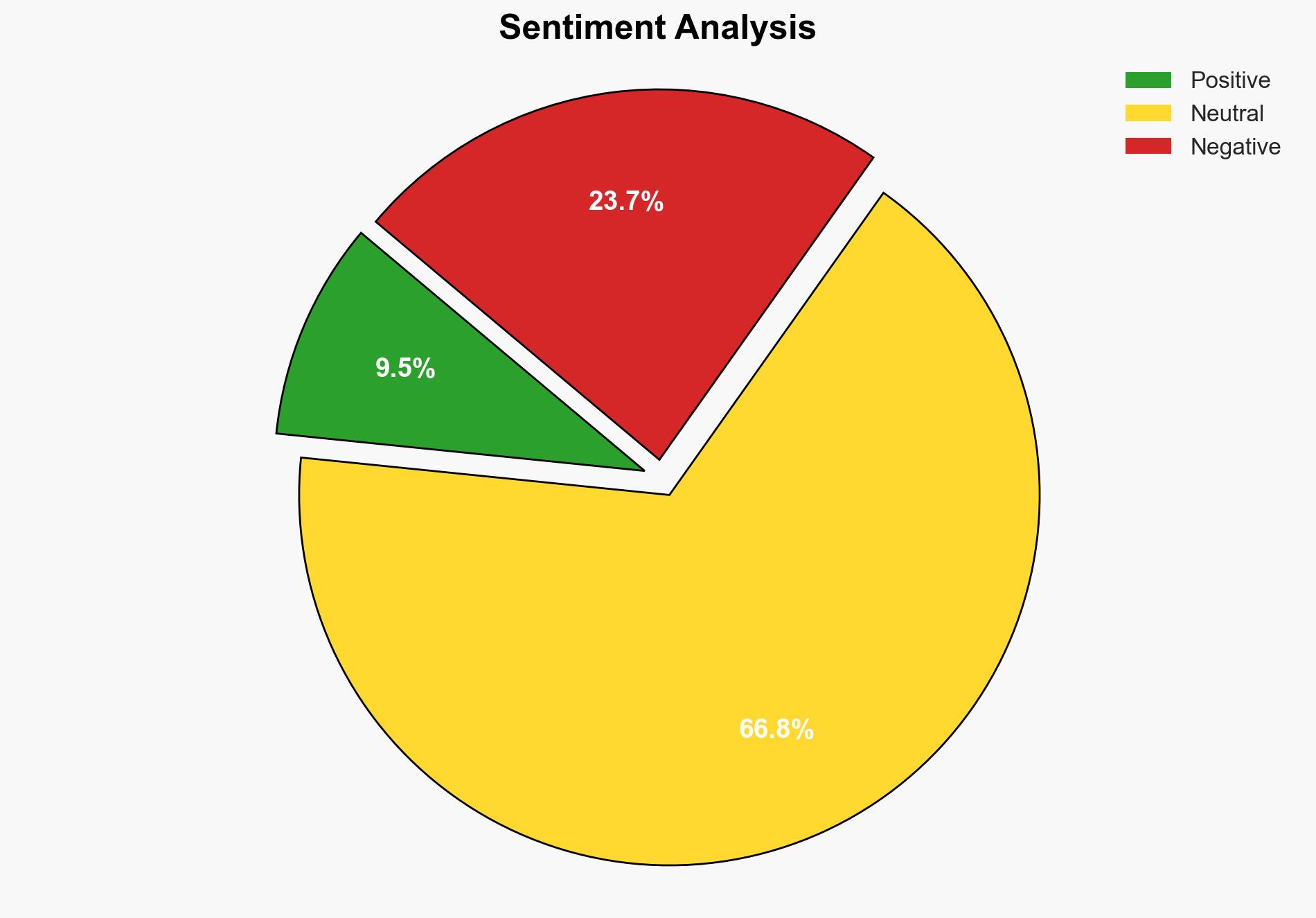Why are there protests in Turkiye What to know – Al Jazeera English
Published on: 2025-03-23
Intelligence Report: Why are there protests in Turkiye What to know – Al Jazeera English
1. BLUF (Bottom Line Up Front)
Recent protests in Turkiye have been triggered by the arrest of Ekrem Imamoglu, a prominent opposition figure. The protests represent broader public dissatisfaction with the current political climate, including concerns over democracy, economic conditions, and governance. The situation poses potential risks to national stability and requires strategic attention from stakeholders.
2. Detailed Analysis
The following structured analytic techniques have been applied for this analysis:
General Analysis
The arrest of Ekrem Imamoglu has sparked widespread protests across Turkiye, with tens of thousands of citizens taking to the streets. The charges against Imamoglu include corruption and alleged ties to outlawed groups, which he denies. The protests are not only a response to his arrest but also reflect deeper societal issues such as concerns over democratic processes, economic challenges, and governance. The timing of the arrest, coinciding with the upcoming presidential election, suggests potential political motivations aimed at undermining opposition candidates.
3. Implications and Strategic Risks
The ongoing protests in Turkiye could lead to significant national security risks, including civil unrest and potential escalation of violence. The situation may also affect regional stability, given Turkiye’s strategic geopolitical position. Economic interests are at risk as prolonged instability could deter foreign investment and impact economic growth. The protests highlight a growing divide between the government and its citizens, which could lead to further political polarization.
4. Recommendations and Outlook
Recommendations:
- Engage in diplomatic dialogue to address the concerns of the protesters and seek peaceful resolutions.
- Monitor the situation closely to anticipate potential escalations and prepare contingency plans.
- Consider implementing reforms to address public grievances related to democracy, economy, and governance.
Outlook:
In the best-case scenario, the protests lead to constructive dialogue and reforms that address public concerns. In the worst-case scenario, the situation escalates into widespread unrest, affecting national stability. The most likely outcome is a continued period of tension with intermittent protests, requiring ongoing monitoring and strategic engagement.
5. Key Individuals and Entities
The report mentions significant individuals and organizations but does not provide any roles or affiliations. Key individuals include Ekrem Imamoglu and Recep Tayyip Erdogan. These figures are central to the current political dynamics and public discourse in Turkiye.





